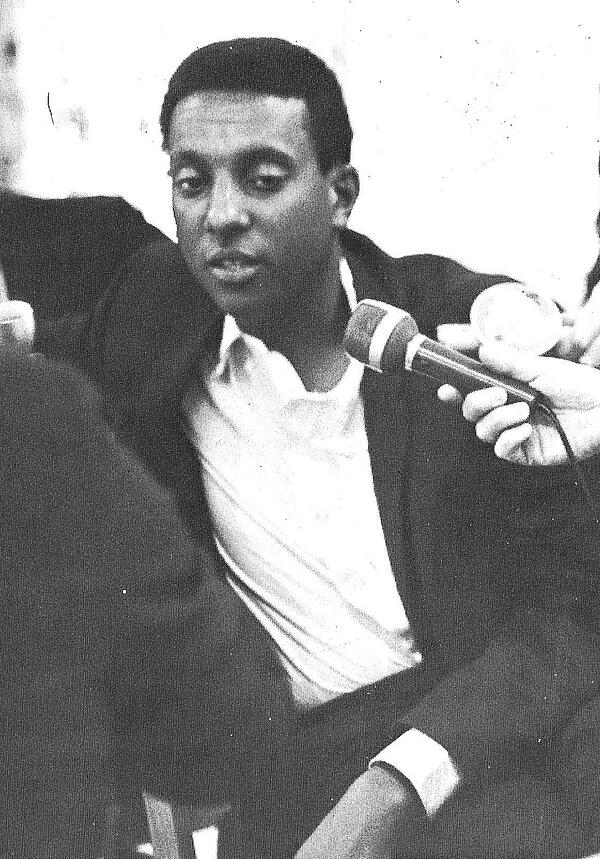Stokeley Carmichael
Stokely Carmichael is remembered for redefining the concept of black power in America. He encouraged African Americans to take pride in their racial identity and to strengthen the sense of solidarity in black communities.
Born in 1941 in Trinidad, Stokely Carmichael moved to New York with his family at the age of nine. Carmichael enrolled at Howard University in 1960 and became involved with SNCC - an organisation that encourage and co-ordinated student non-violent protest.
In 1961, Carmichael joined the Freedom Rides and eventually dropped out of college to work for SNCC full-time. When he replaced John Lewis as chairman, it was clear that SNCC’s focus was changing from non-violence to black militancy.
By 1966, Carmichael had begun to question the effectiveness of King's nonviolent strategy. When James Meredith, a demonstrator who led a 220-mile "March Against Fear," was shot trying to prove that white violence was not to be feared, Carmichael came to the realisation that perhaps violence was sometimes necessary.

After becoming the SNCC’s chairman in 1966, Carmichael continued James Meredith’s March Against Fear, but he was arrested for the twenty seventh time during the march for putting up a tent at an African American school in Jackson.
It is thought that Carmichael’s support for militancy was born out of this march. He felt that the philosophy of non-violence held innate weaknesses. He clashed with Roy Wilkins, head of NAACP on this topic. Carmichael also believed that the march should only be attended by African Americans.
After he was released from prison, Carmichael gave his "Black Power" speech where he urged African Americans to come together to fight for their heritage.
He argued that integration was impossible and for African Americans to gain power, they had to close off their ranks to whites. Figures vary as to the size of his audience. Some put it at 600 while historian John Dittmer estimated the figure to be as high as 3,000.
Carmichael adopted a radical, and often violent stance, towards his white ‘oppressors’. He also included references to Marxism in his speech, which was a huge shift from Martin Luther King’s beliefs.
After stepping down as SNCC chair, Carmichael wrote the book Black Power in 1967 with Charles V. Hamilton. He also continued as a strong critic of the Vietnam War, and imperialism in general. During this period he traveled and lectured extensively throughout the world; visiting Guinea, North Vietnam, China, and Cuba.
Carmichael’s followers adopted a characteristic African style, with African dress and Afro hairstyles in opposition to white styles of dress.
After a brief stint in the Black Panthers, Carmichael formed his own party, The All African Peoples Revolutionary Party, based on the principles of socialism and Pan-Africanism.
In 1968, he moved to Guinea, Africa where he changed his name to Kwame Ture and worked as a political aide to the country’s prime minister Sekou Toure.
Carmichael died in November 1998 at the age of 57.
See also: Malcolm X
MLA Citation/Reference
"Stokeley Carmichael". HistoryLearning.com. 2026. Web.
Key facts
| Name: | Stokely Carmichael |
| Birth Date: | 29 June 1941, Trinidad |
| Death: | 15 November 1998, Guinea |
| Occupation: | Political activist, Chairman of SNCC |
| Known for: | Developing the idea of Black Power |
